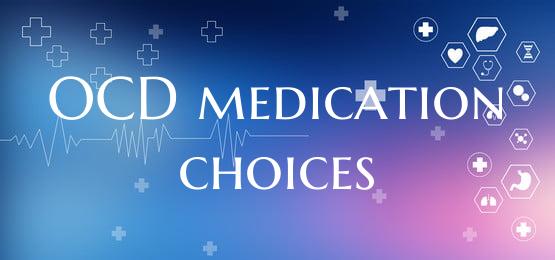
OCD medication choices
Obsessive-Compulsive Disorder (OCD) Medication Choices
Obsessive-Compulsive Disorder (OCD) is a mental health condition characterized by persistent, unwanted thoughts (obsessions) and repetitive behaviors or mental acts (compulsions) that individuals feel driven to perform. While therapy is often an essential component of OCD treatment, medication can also play a significant role in managing symptoms and improving quality of life for those with OCD.
There are several medication options available for treating OCD, and the choice of medication often depends on the individual's symptoms, medical history, and preferences. The most commonly prescribed medications for OCD include:
1. Selective Serotonin Reuptake Inhibitors (SSRIs): SSRIs are the first-line medication treatment for OCD. These drugs work by increasing the levels of serotonin in the brain, which can help reduce obsessions and compulsions. Some commonly used SSRIs for OCD include fluoxetine (Prozac), sertraline (Zoloft), and fluvoxamine (Luvox).
2. Tricyclic Antidepressants (TCAs): TCAs are an older class of antidepressants that can also be effective in treating OCD. Clomipramine (Anafranil) is a TCA that is often used for OCD, as it has been found to be particularly effective in reducing symptoms.
3. Serotonin-Norepinephrine Reuptake Inhibitors (SNRIs): SNRIs, such as venlafaxine (Effexor), may also be prescribed for OCD when SSRIs are not effective or well-tolerated.
4. Augmentation Strategies: In cases where standard medications do not provide sufficient relief, healthcare providers may consider augmenting the treatment with other medications, such as atypical antipsychotics (e.g., risperidone) or mood stabilizers (e.g., lithium).
It is important to note that medication management for OCD should always be done under the guidance of a qualified healthcare professional, such as a psychiatrist or a primary care physician with experience in treating OCD. Medication treatment for OCD often requires a trial-and-error approach to find the most effective and well-tolerated option for each individual.
In addition to medication, therapy, such as cognitive-behavioral therapy (CBT) or exposure and response prevention (ERP) therapy, is often recommended as a comprehensive treatment approach for OCD. These therapies can help individuals better understand their symptoms, learn coping mechanisms, and gradually confront and overcome their obsessions and compulsions.
If you are struggling with OCD symptoms, it is essential to seek help from a mental health professional who can provide a thorough evaluation and develop a personalized treatment plan that may include medication options tailored to your specific needs and preferences. With the right combination of medication and therapy, individuals with OCD can manage their symptoms effectively and improve their overall well-being.